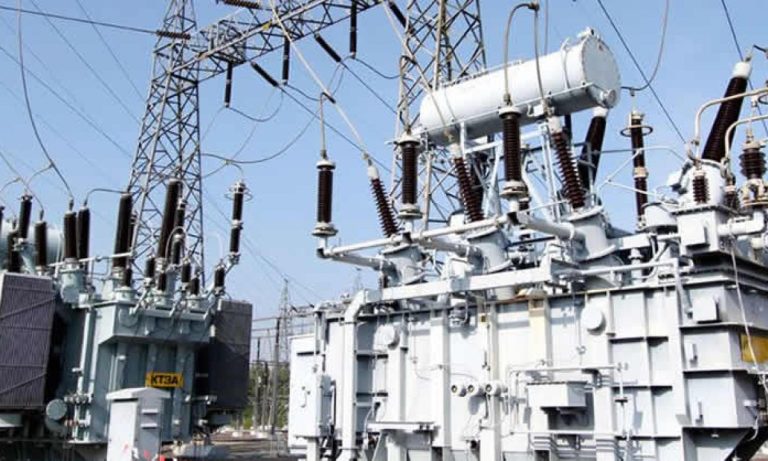An energy expert and former member of the Ministerial Taskforce on Power, Engr. Olatunji Ariyomo, has warned the National Assembly against plan to make the Nigerian Electricity Management Services Agency (NEMSA) the sole regulator of electricity’s technical standards in the country.
Ariyomo who gave this warning in Akure, the state capital on Tuesday, said there was not justification for making NEMSA the sole regulator of electricity’s technical standards in Nigeria.
According to him, both the federal and state governments have legislative and regulatory responsibilities concerning electricity matters, including the development and enforcement of technical and safety standards.
He however said that “the plot to centralize technical standard under a single federal agency is a threat to the very principle of decentralization of the power sector which is now a constitutional right for states.
“The justification advanced for the plan, while sounding good on the surface, is dangerous and has no basis in science, engineering, or law and is entirely antithetical to the ongoing revolution in the power sector”.
Ariyomo, who led the team that created the first independent state electricity law in Nigeria and established the first state electricity regulatory commission explained that the development will undermine sectorial growth, encumber investments into the sector through sub-nationals.
He said apart from this, it will also jeopardize the success achieved with the clarity brought to the power sector through the alteration of the relevant sections in the constitution as assented by former President Muhammadu Buhari on the 17th of March 2023.
ALSO READ: Death threat on Seyi Tinubu: Court to rule on bail for suspect, January 6
The Akure-born engineer who is one of those who championed the quest for the decentralization of the nation’s power sector over the past 24 years, stated that “states derived the power to manage the entire lifecycle of the electricity process within their domains from the Constitution and not from the Electricity Act.
“If we leverage this decentralization properly, we are poised to experience exponential growth in the sector as against the incremental philosophy that we embraced in the past.
“We would have 37 people collaboratively shouldering a burden hitherto borne by a single person”.
He said, “lawmakers erroneously advanced that they desire a centralized provider of technical standard in other to avoid confusion. Confusion? This is very uncharitable. We are discussing engineering here. Engineering is a practice, a professional practice. Codes and technical standards are universal.
“There are no different or disparate standards of practice in engineering worldwide. What you can have are individuals who may desire to shortchange standards.
“You will find them at the national level, at state level, and in the local government or private sector.
“For instance, most practitioners in the power sector globally today leverage the IEC technical standards for electrical, electronic, and related technologies whether in distribution or transmission line design or construction.
“Just the same way that civil and structural engineers have leveraged Eurocodes for several years even when ambitious and patriotic Nigerian engineers called for domestication.
“So, when national and state or sub-nationals across the world develop or upgrade their grid codes, they mostly recourse to the same IEC. In essence, it doesn’t matter who you are in the power industry, you must rely on the same fundamentals in your design and construction, and in your standards stipulates and benchmarks.
“That’s why we say codes and standards are universal because they are products of science and engineering. A state’s authority and a federal authority will drink from the same figurative fountain of knowledge.
“The NEMSA does not possess any exclusive expertise or own any technical standard that can outclass the ones by the International Electromechanical Commission for example.
“Where standards appear to seemingly defer in engineering from the standpoint of non-engineers, they defer only along the principles of science and engineering but remain acceptable with provisions for adaptability and interoperability”.
Ariyomo further asserted that the National Assembly does not have the power to grant exclusive authority to NEMSA on local distribution networks, saying “the National Assembly does not have the exclusive power it seeks to exercise in making the regulation of technical standards the exclusive preserve of NEMSA.
“Power is on the concurrent legislative list. You cannot take away from states such rights and privileges granted to them by the Constitution.
“More significantly, as far as the distribution of electricity is concerned in Nigeria, the power to operate distribution networks or set up institutional frameworks for the management of distribution inter-state or within a sub-national is conferred exclusively upon states by the constitution- the only exception being at international boundaries.
“In essence, it is illegal for any agency of the Federal Government to dabble in any matter that bothers on distribution within the geographical boundaries of a state except in parts of a state that borders another country in which case such a ‘shobolation’ must in fact be for the purpose of distribution in an arrangement with another country”.
